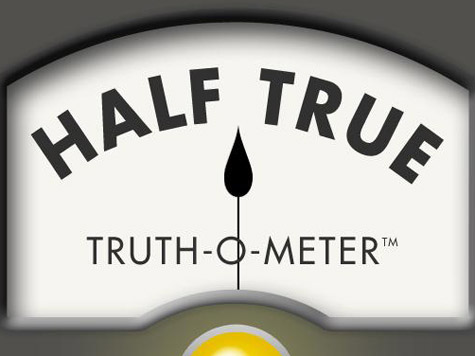
The NY Times’ public editor has a new column in which she contradicts Thomas Mann and Norman Ornstein and advocates for more, and more integrated, fact-checking in the news.
Back in April, Thomas Mann and Norman Ornstein decided to promote their new book by writing an op-ed in the Washington Post. The gist of their argument was that Republicans take advantage of the media’s even-handedness by lying a lot. To correct this, they argued, the media needed to stop playing fair and just point out that one party lies more often than the other. No more false equivalence between Democratic truth-tellers and Republican fantasists.
Naturally this argument went over big with Democrats but didn’t exactly take off in the wider public. In fact, according to Mann and Ornstein, they have become pariahs for refusing to be “balanced” on TV by someone representing Republicans:
“It’s awkward. I can no longer be a source in a news story in the Wall Street Journal or the Times or the Postbecause people now think I’ve made the case for the Democrats andtherefore I’ll have to be balanced with a Republican,” Mann said.
Neither Mann nor Ornstein have been guests on any of the main Sundaypublic affairs shows since their book came out. Nor has anyone else onthose shows talked about the concerns they raised.
The other bugaboo that Mann and Ornstein address is the rise of fact-checking. Naturally, they see it as a problem because fact-checkers strive to play fair:
“There was some damn good stuff done, and stuff that really did holdRomney to account,” Ornstein said. But no fact-checker intent onaxe to grind, is going to actually do the job of saying that we’re goingto cover 20 fact checks on one side, to three on the other.”
So, Ornstein concluded: “If you looked at where the scales shouldhave been, and where they were, they were weighted. And they weren’tweighted for ideological bias. They were weighted to avoid being chargedwith ideological bias.”
What Mann and Ornstein want is for the media and the fact-checkers to beless “fair” to Republicans. Instead, just call them liars and move on. But what’s never spelled out in any of their articles (I haven’t read their book) is how they know exactly where the scales “should have been.” Where is the line? It’s where we say it is. Which lies are significant? The ones we say are significant. It’s a rather presumptuous argument to say the least and open to plenty of confirmation bias.
So it’s actually somewhat of a relief that the Times’ public editor isn’t drinking the Mann and Ornstein Kook-Aid, at least not completely:
I find Mr. Ornstein and Mr. Mann’s observations smart, provocative and on target in many, though not all, places.
I disagree, for example, that the move toward fact-checking has made thepress’s performance worse. On that subject, I agree with The Times’spolitical editor, Richard Stevenson, who told me last September in a columnI wrote on this subject that he saw the move toward “truth-squading” asBut to take it one step further, I believe that fact-checking should bemore integrated into every story and not treated as a separate entityoff to the side.
Mann and Ornstein fault the fact-checkers for being too fair when what they often are is intentionally misleading. This seems to completely escape their notice as does a lot of media bias. And that is worrisome given that their argument is that they know where the scales should be.
But even if you assume, for the sake of argument, that Mann and Ornstein are right about the problem, it’s not hard to see even worse problems arising from a call for less fairness. Surveys show the media is overwhelmingly made up of left-of-center individuals. If you tell them to stop trying to be so fair, what is the chance the pendulum will swing to the golden mean of absolute truth and go no further?

COMMENTS
Please let us know if you're having issues with commenting.